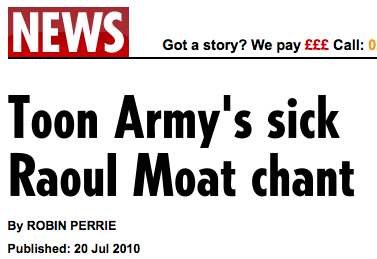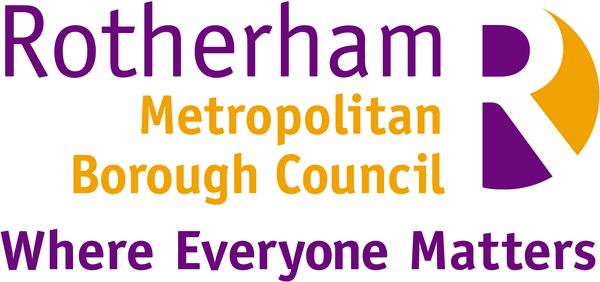August 13, 2010
Our comrades in the North
1:

Owen on the demolition of the Trinity Square car park ...
- Trinity Square failed to be sufficiently boring. That's not the case with its mooted replacement – a Tesco store with student flats on top, clad in as many materials as possible so as not to offend, concrete-framed but avoiding the dreaded faux pas of showing the material. Rodney Gordon claimed "architecture should appeal to the emotions. It should give you that feeling from your balls to your throat". With this demolition, we're exchanging architecture as a physical experience for buildings as a mute, grinning, lobotomised accompaniment to consumerism.
2:

Superb post on Raoul Moat and folk-opposition on excellent new football blog Mole on The Wall:
- It is becoming increasingly apparent that football is the battleground on which many of the most vital political and cultural debates of the next few years will take place. Indeed, the growing popular discontent with the Premier League and the F.A. might represent first signs of a thaw in the neoliberal winter, the first chinks in the armour of an adversary hitherto regarded as unbeatable.
- ... the whole narrative underlines the sheer depth of oppositional feeling in places like the north east to a London-centric nexus that is now, once again, unequivocally Conservative, hard-line, unsympathetic, given to scapegoating individuals, and wholly unapologetic about launching explicit attacks on entire localities like Northumbria and Northern Ireland.
Patrick Butler in The Guardian:
- How does a local authority go about making a 30% cut to its budget over three years, and what are the consequences? Sheffield Indy Media, a citizen reporter organisation, alerted me to this podcast of a talk given by Martin Kimber, chief executive of Rotherham borough council to local charity leaders in south Yorkshire last month.
- There are three particularly interesting parts to it: the insight it gives into the massive upheavals to come; the huge effect this will have on the culture of a "paternalistic" Labour-run council and what it means for its workers; and the implications for the local voluntary sector.
- The changes have come rapidly. As Kimber says in the preamble to his talk:
- "Doesn't the world seem a different place? The last three months feels like three years."
- Kimber proceeds to explain how in the next three years public spending cuts will impact on the council and the local community. The national in-year cuts announced in June, he says have already hit: £6m trimmed from in revenue funding, £3m from capital funding, and £100m of Building Schools for the Future capital finance lost. By 2014, its spending power will be just 70% of what it is now (currently around £250m, excluding its schools budget).
- This means big changes, which I've corralled together in the following three points:
1./ The council will protect "services for the most vulnerable" - and not "organisations or structures," says Kimber. This suggests that the council will provide less services in-house, contract out more, and employ fewer people.
2./ Its longstanding "culture of paternalism" towards its employees, the idea that it has a duty to provide secure employment for local people (which developed in the 1980s as a response to the hollowing out of south Yorkshire's coal and steel industries) is coming to an end.
3./ It will simply stop providing some "non-core" services, particularly if it believes those services might be self-supporting. "The communities that can help themselves, will help themselves," says Kimber.
- Now for the obviously controversial bit. In the question and answer session he refers to his staff who resist the changes as "terrorists". Asked whether his staff are prepared for the changes he points out that in his council, as in every organisation there are employees who embrace change, those who accept it passively, and those he says, who reject it. He calls this third group, with an unfortunate turn of phrase, as:
- "The terrorists, the resisters."
